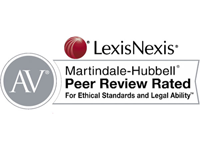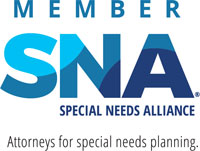[/db_pb_fullwidth_slider]
A couple of months back we informed our readers of some changes that were on the horizon in the New York State Medicaid program for those who hope to receive home and community-based services, including the imposition of a penalty period for individuals who transfer assets in anticipation of an application for certain Medicaid-funded home care programs (see https://www.wplawny.com/while-you-were-disinfecting-unsettling-changes-to-new-yorks-home-care-programs/). At the time, there remained a number of questions about how the new 30 month “look back” and penalty provisions would be implemented. Over the last several months, we received some much-needed clarification from the New York State Department of Health.
First, the effective date of the law has been pushed back to January 1, 2021 due to the Coronavirus pandemic. This means that no look-back will be conducted on home care applications if the applications are made before January 1, 2021. However, once the look-back is implemented as part of the application process, the look-back will be on transfers made on or after October 1, 2020. The New York State Senate has passed legislation codifying this interpretation, and most expect the Assembly to pass it when they come back into session later this summer.
Thus, effective January 1, 2021, individuals who apply for most Medicaid funded home care programs will be subject to audit for transfers made during a 30 month ‘look back’ period preceding the application, but will only be penalized for transfers made on or after October 1, 2020, if those transfers do not fall into one of a handful of exceptions. Because only transfers made on or after October 1, 2020 will be subject to penalty, the retroactive audit period will be adjusted to limit the need to produce financial information prior to October 1, 2020. As we noted in our prior newsletter, transfers to private and pooled first party supplemental needs trusts can still be made by individuals under the age of 65 without penalty
Unfortunately, the use of pooled supplemental needs trusts by individuals over the age of 65 to protect income from “spend down” is likely to become more complicated under the new rules. Under current rules and practice, an individual over the age of 65 can retain her monthly income by transferring a portion of that income to a pooled supplemental needs trust on a monthly basis. The income can then be used by the trustee to help pay the ongoing costs of residing in the community. Thus, under current rules an individual can effectively retain all of her income (through the pooled trust) and still obtain critically important Medicaid-funded home care. This has allowed many Seniors and individuals with disabilities to delay the need for institutionalized care.
Under the new rules, transfers of income by someone over the age of 65 to a pooled supplemental needs trust will be considered an “uncompensated transfer” and subject to penalty unless those funds are fully utilized by the trustee for the individual’s benefit. A number of questions remain regarding the implementation of this new rule, the guidance for which is still being developed by the Department of Health. Attorney Tara Anne Pleat of our office, immediate Past Chair of the New York State Bar Association Elder and Special Needs Law Section, is continuing to work on behalf of the Section to influence how this new rule can be implemented in a clear and understandable manner.
Finally, and based on preliminary guidance from the Department of Health, this new look-back period will only apply to Home and Community based services under the Managed Long Term Care Programs (MLTCs), Consumer Directed Personal Assistance Programs (CDPAP/CDPAS) and Personal Care Services Programs (PCS/PCSP). Individuals applying for services through the Office for People With Developmental Disabilities (OPWDD), through the Traumatic Brain Injury Waiver (TBI) and through the Nursing Home Transition and Diversion Waiver (NHTD) will not be subject to the 30 month lookback.
The bottom line is that the imposition of a transfer of asset penalty will make planning for Medicaid-funded home care significantly more difficult after October 1, 2020. Individuals who are contemplating a need for home care and who wish to proactively plan to preserve assets should be evaluating that need and should strongly consider getting their planning done before October 1, 2020.
Firm News
We are excited to announce that attorney Katy Carpenter gave birth to a baby boy in March. Katy is back on a reduced schedule and will be returning full time in the Fall.
Beginning with the January 2021 edition, Attorney Tara Anne Pleat is a now a primary co-editor, along with Attorney Michael Kutzin of White Plains, of the LEXISNEXIS Publication “New York Elder Law”. The publication contains comprehensive analysis and practice guidance for elder law and special needs attorneys practicing in New York. Some topics that are discussed include: planning for incapacity (property management & health care decisions); Medicare and long-term care insurance; Medicaid; supplemental needs trusts; guardianships; estate planning and wills; health care coverage and resources; financial planning; income and estate tax; and elder abuse. We are proud of her selection to serve as a co-editor of this heavily relied upon publication.
















Recent Comments